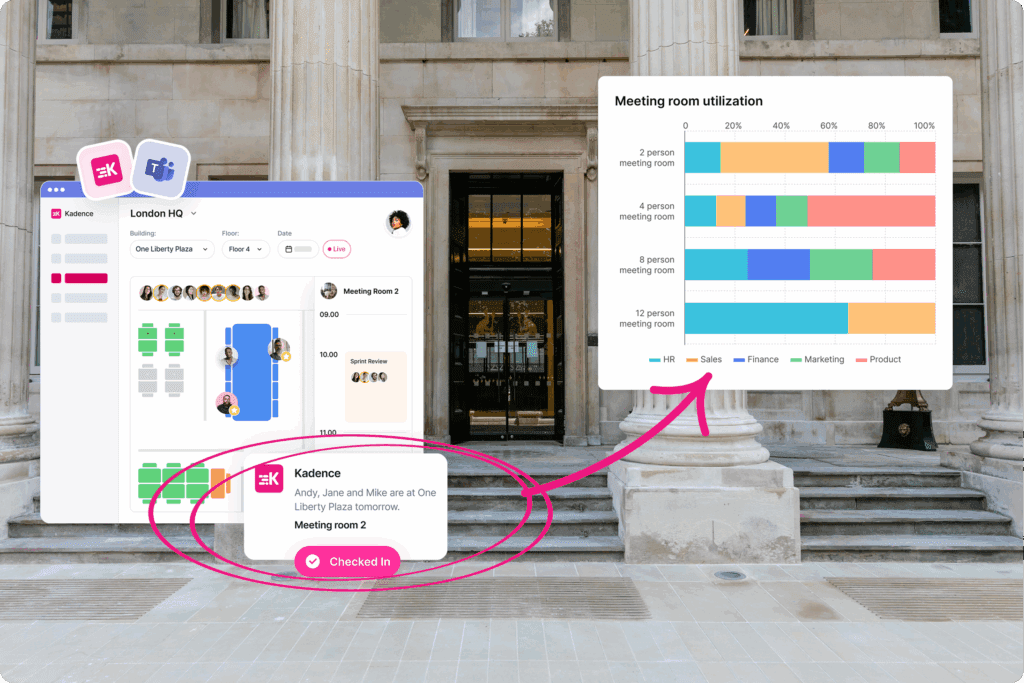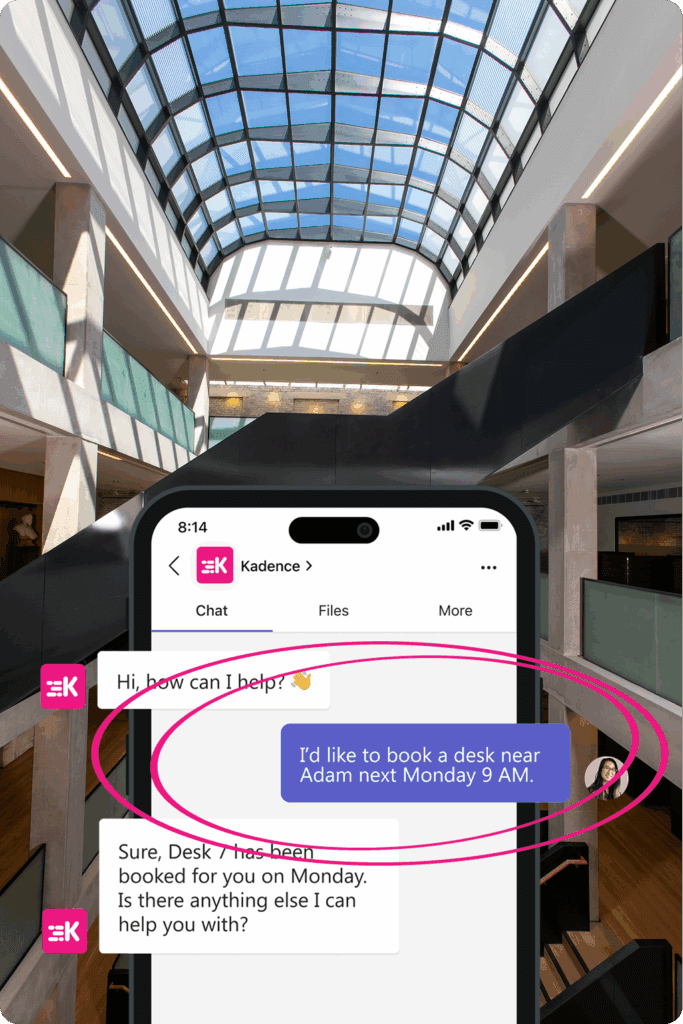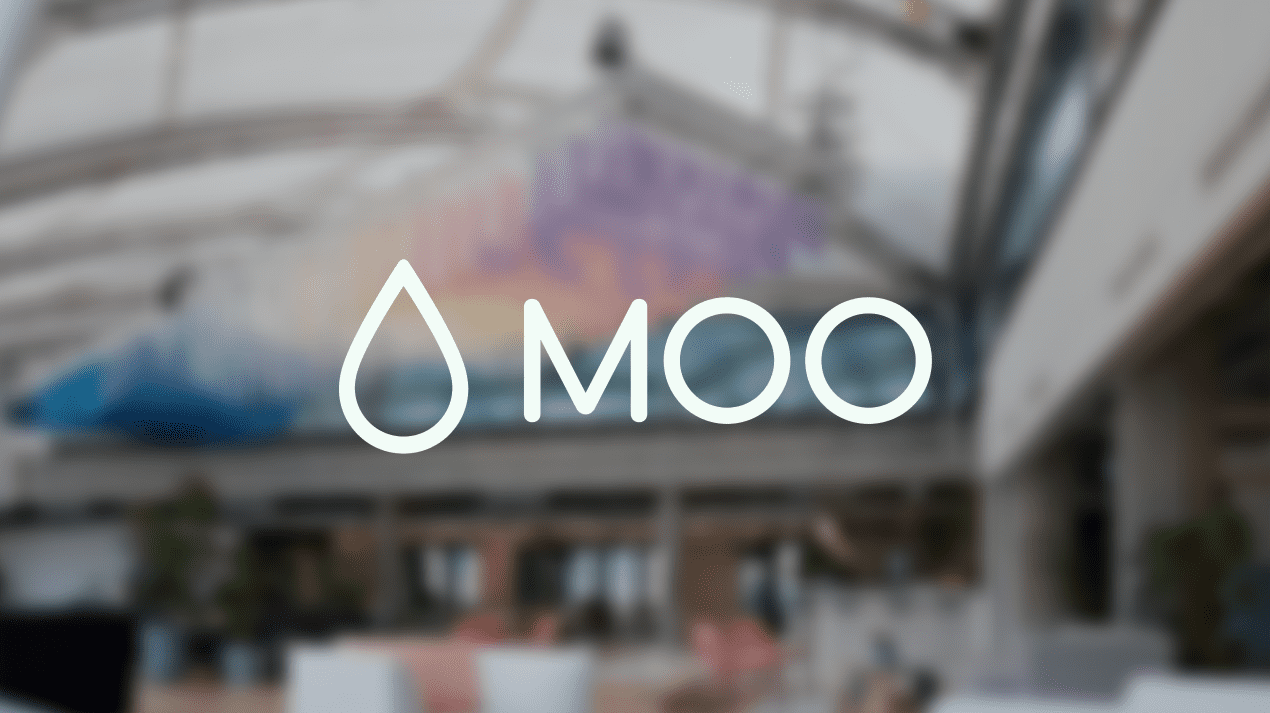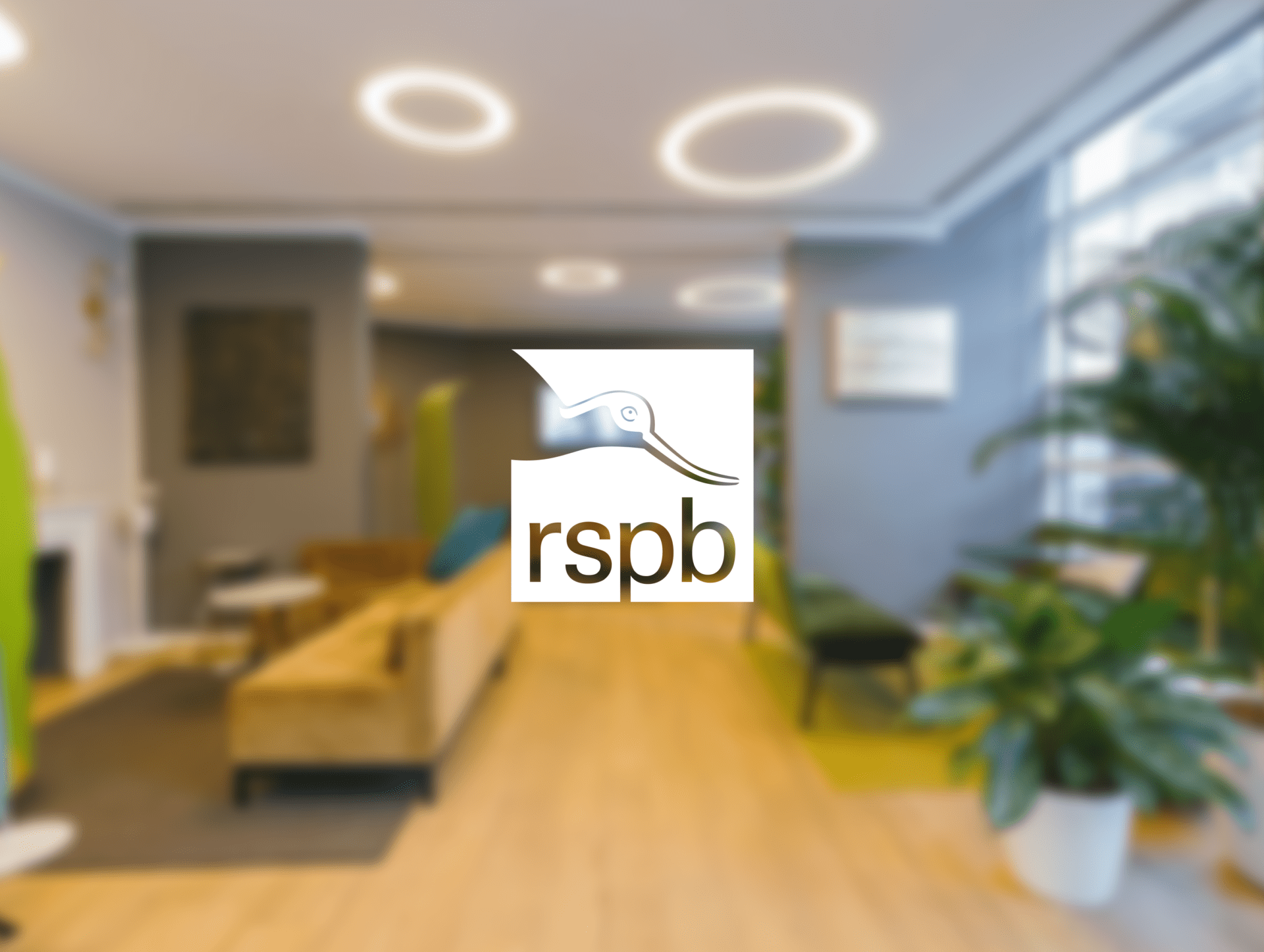What began as a desk management fix became an organizational culture shift. For RCS England, Kadence delivered clarity, efficiency, and unity across teams.
With Kadence, RCS England streamlined operations, optimized space, and made the office a place people wanted to be:
- Consolidated 2 office floors into 1
- £40,000 annual savings by consolidating 2 floors into 1
- 85% of employees achieved minimum office attendance voluntarily
- 300+ hours annually of admin work reclaimed
Before adopting Kadence, RCS England faced a growing list of challenges that made hybrid coordination difficult and limited productivity:
- Lack of infrastructure: No existing desk booking system in place to support hybrid working. Employees were overwhelmed by new tools and hesitant to adopt more technology.
- Siloed culture with poor in-office engagement: Teams worked in isolation, with few cross-departmental interactions. The team needed a tool to help coordinate employees coming to the office.
- Heavy admin burden: Coordinating space and check-ins took significant operational time each week. There was no clear way to support staff with mobility or ergonomic needs.
With a clear goal to optimize operation efficiency and cut facilities costs, RCS England set out to consolidate two office floors into one while rolling out new hybrid policies. The challenge was twofold: manage the logistics of reduced space and ensure the shift didn’t disrupt how people worked. Kadence was chosen for its simplicity, operational fit, and native Microsoft Teams integration. Within two weeks, 100% of employees were actively booking desks, supported by SSO for zero-friction access. The rollout was seamless as it streamlined an existing need rather than changing behavior, delivering both immediate efficiency gains and significant annual cost savings.

Like many institutions, RCS England struggled with siloed departments. Teams tended to sit, communicate, and collaborate only within their own groups. Team Kadence visibility helped unlock serendipitous interaction. Staff could see where colleagues were sitting and intentionally co-locate for collaboration.
Kadence’s AI assistant (embedded within Microsoft Teams) also changed the game. Staff now simply type “Book me a desk for Thursday” or “Who’s in today?” and the system does the rest. It’s a lightweight gateway to hybrid coordination that meets users where they are. This shift helped with more social connections between staff as well as internal social clubs, with a 50% boost in cross-team collaboration.

While the official policy only required employees to be in the office 20% of the time (1-2 days a week), many weren’t meeting even that threshold. There were concerns that hybrid work would lead to disengagement.
Kadence changed that. By making it easy to see who was in, coordinate schedules, and avoid desk uncertainty, employees began choosing to come in more often. Now, 85% of the RCS workforce achieve the minimum in-office attendance requirement, not due to mandates, but because the experience is smoother and more socially rewarding.
Managing desk usage and office resources was once a manual, resource-draining process. Without automation, the operations team had to track check-ins by hand, fix double bookings on the fly, and respond to a constant stream of booking queries. In addition, some staff required desks close to lifts, toilets, or those that offered adjustable-height configurations, but there was no structured way to manage this.
With Kadence, those inefficiencies disappeared, all without operational overhead. The team at RCS England required a portion of desks for mobility needs, as well as for ergonomic comfort. Users can now personalize desk bookings that fit their needs without requesting special treatment, fostering both dignity and autonomy in the process. Automated desk release and AI-assisted booking freed up more than 6 hours a week, adding up to 300+ hours annually that could be reinvested into higher-value priorities.
RCS England didn’t just roll out hybrid, they made it work.
- No training
- No micromanagement
- No chasing people to show up
Instead, they got:
- 85% of staff voluntarily coming in more
- Over £40K savings in facilities costs
- 300+ hours of admin work reclaimed
- A happier, more connected culture, on one floor (not two!)
All powered by a workplace operations platform people actually want to use. Chat with our team today to discover how we can help you maximize operation efficency and implement a successful flexible work model for your organization.





